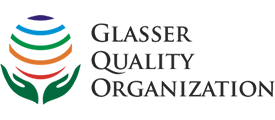The signs, symptoms, and effects of marijuana abuse can be different for every person impacted. Learning about marijuana abuse is one of the first steps towards getting better.
Understanding Marijuana
Learn about marijuana and substance abuse
Marijuana is one of the most widely used substances throughout the United States today. Also known as weed, pot, and cannabis, marijuana elicits feelings of relaxation, contentment, and, oftentimes, a sense of being somewhat detached from one’s surroundings. These effects are felt because the active ingredient in marijuana attaches itself onto brain receptors and causes certain changes to occur within the chemistry of the brain. The feelings that result from marijuana abuse are desirable for many people, and can hinder a person’s ability to stop using the substance.
As legalization of marijuana for recreational use continues to become a reality in various states across the U.S., the risks for what long-term use of this substance can do seem to have become less frequently addressed. Unfortunately, however, the use of marijuana can lead to the onset of a number of detriments within the lives of users, and the dangers associated with the abuse of this drug should not be overlooked.
According to the American Psychiatric Association (APA), marijuana is considered to be a “gateway drug” because individuals who abuse it have a greater probability of also abusing more dangerous substances including such drugs as methamphetamine, cocaine, and heroin. Furthermore, the abuse of alcohol is often cited as co-occurring alongside the abuse of marijuana. For these reasons and more, once an individual has developed cannabis use disorder, it is important that he or she receives treatment so that the compulsion to abuse marijuana does not continue to negatively affect his or her life.
Statistics
Marijuana abuse statistics
The APA notes that cannabinoids, especially marijuana, are the most widely used of all psychoactive substances. According to the 12-month prevalence of marijuana use among the adult population, approximately 1.5% of individuals, aged 18 and older, struggle with cannabis use disorder. The rates of this disorder have proven to be higher in adult males than they are in adult females, averaging 2.2% versus 0.8%, respectively. Furthermore, research has demonstrated that the rate of marijuana abuse tends to decline with age. The APA states that rates are highest among people between the ages of 18 and 29 and are lowest among people over the age of 65.
Causes and Risk Factors
Causes and risk factors for marijuana abuse
The causes and risk factors that can contribute to an individual’s susceptibility for abusing marijuana are discussed briefly in the following:
Genetic: Genetic influences may impact the development of cannabis use disorder, according to the APA. This means that individuals who have a family history of substance abuse, including the abuse of marijuana, are more susceptible to struggling with the same type of addiction than are individuals who do not share the a similar genetic background.
Environmental: Environmental factors can also play a role in heightening an individual’s vulnerability to beginning to use and abuse marijuana, especially when combined with genetic factors. Such things as living in an unstable or abusive family situation, having a low socioeconomic status, smoking tobacco, and failing academically are all cited by the APA as being risk factors for the development of cannabis use disorder. Additionally, when individuals are surrounded by other people who abuse marijuana or other drugs, they are at a greater risk for engaging in the same type of behavior.
Risk Factors:
- Possessing a history of conduct disorder in childhood or adolescence
- Suffering from antisocial personality disorder
- Family history of substance abuse
- Lacking inhibition
- Ease of access with which one can obtain marijuana
- Being the victim of abuse or neglect
Signs and Symptoms
Signs and symptoms of marijuana abuse
The signs and symptoms that may indicate that someone is struggling with a marijuana abuse problem can vary from person to person, but may include the following:
Behavioral symptoms:
- Social withdrawal
- Unexplained absences from work
- No longer performing at the expected level occupationally
- Engaging in risky or reckless behaviors
- Possessing drug paraphernalia
- No longer participating in activities that were once enjoyed
Physical symptoms:
- Increased appetite
- Dry mouth
- Red, bloodshot eyes
- Impaired motor coordination
Cognitive symptoms:
- Experiencing the sensation of time being slowed
- Impaired judgment
- Perceptual disturbances
Psychosocial symptoms:
- Euphoria
- Anxiety
- Declined interest in things that one was once interested in
- Irritability and agitation
Effects
Effects of marijuana abuse
The prolonged abuse of marijuana can elicit a number of detrimental consequences in the lives of those using it. Psychosocial functioning, cognitive functioning, and one’s overall health and wellbeing can all be compromised as a direct result of marijuana abuse. Examples of specific effects that can impact the lives of marijuana users include, but are not limited to, the following:
- Cognitive impairment
- Difficulty performing at work, potentially resulting in problems with maintaining employment
- Disturbed social relationships
- Respiratory illnesses
- Onset of new, or worsening of current, symptoms of mental health disorders
- Suffering an acute psychotic episode
- Familial strife / marital problems
- Interaction with law enforcement
Co-Occurring Disorders
Marijuana abuse and co-occurring disorders
The abuse of marijuana frequently occurs alongside the presence of other mental health conditions. Examples of the various disorders that have been cited as co-occurring with cannabis use disorder include:
- Bipolar I disorder
- Major depressive disorder
- Anxiety disorders
- Schizophrenia
- Obsessive-compulsive personality disorder
- Antisocial personality disorder
- Paranoid personality disorder
- Alcohol use disorder
- Stimulant use disorder
- Other substance use disorders
Withdrawal
Effects of marijuana withdrawal
When individuals abruptly cease daily or near-daily use of marijuana, the APA notes that they are at risk for experiencing symptoms of cannabis withdrawal syndrome. While withdrawing from marijuana is typically not as severe as withdrawing from substances like opioids or alcohol, it can still result in a significant amount of distress. This distress is what often contributes to individuals resuming their use of the substance. Examples of symptoms and effects that can arise during the period of withdrawal from marijuana may include the following:
- Irritability
- Anger or aggression
- Depressed mood
- Anxiety
- Nervousness
- Sleep difficulties
- Restlessness
- Decreased appetite
- Weight loss
- Abdominal pain
- Fever
- Chills
- Sweating
- Shakiness / tremors
- Headache







